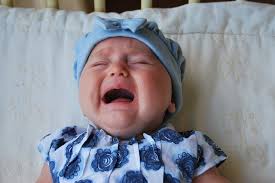 A child’s grief response to divorcing parents can be somewhat predicted by their developmental age grouping at the time of the divorce. The child’s needs and responses will vary from one age grouping to another. Of course, children move through developmental stages at different rates, so the following age groupings are approximate.
A child’s grief response to divorcing parents can be somewhat predicted by their developmental age grouping at the time of the divorce. The child’s needs and responses will vary from one age grouping to another. Of course, children move through developmental stages at different rates, so the following age groupings are approximate.
Infants, 0 to 18 months old, may become fretful, nervous and show some developmental delays. Frequent cuddling and consistent routines will help increase their sense of security. Unresponsiveness or a failure to gain weight or grow appropriately would suggest a consultation is needed with the infant’s pediatrician.
Toddlers, 18 months to 3 years old may become more moody, more attention seeking or withdrawn and fearful, sometimes accompanied by unusual changes in sleeping and eating habits. Regressive behaviors may occur, such as bed-wetting and tantrums. Toddlers need both physical and verbal reassurance, together with consistent routines.
Preschool children (3 to 5 years) are not old enough to understand divorce and frequently blame themselves for the divorce. They may become very preoccupied with being “good.” They may resist separating from either parent, fearing that one or both parents won’t return. Temper tantrums, regressions, fears of rejection and abandonment may occur. They need plenty of reassurance that each parent is there for them and will return to them. Reading age-appropriate books to them about divorce can help them verbalize their feelings.

